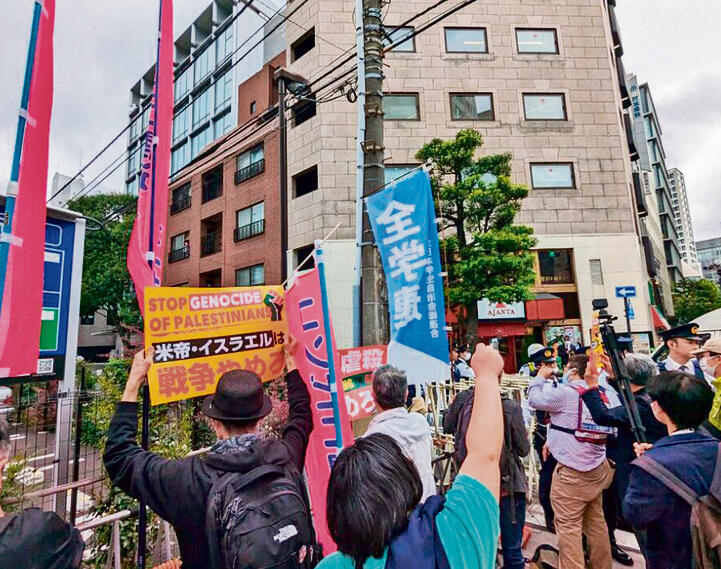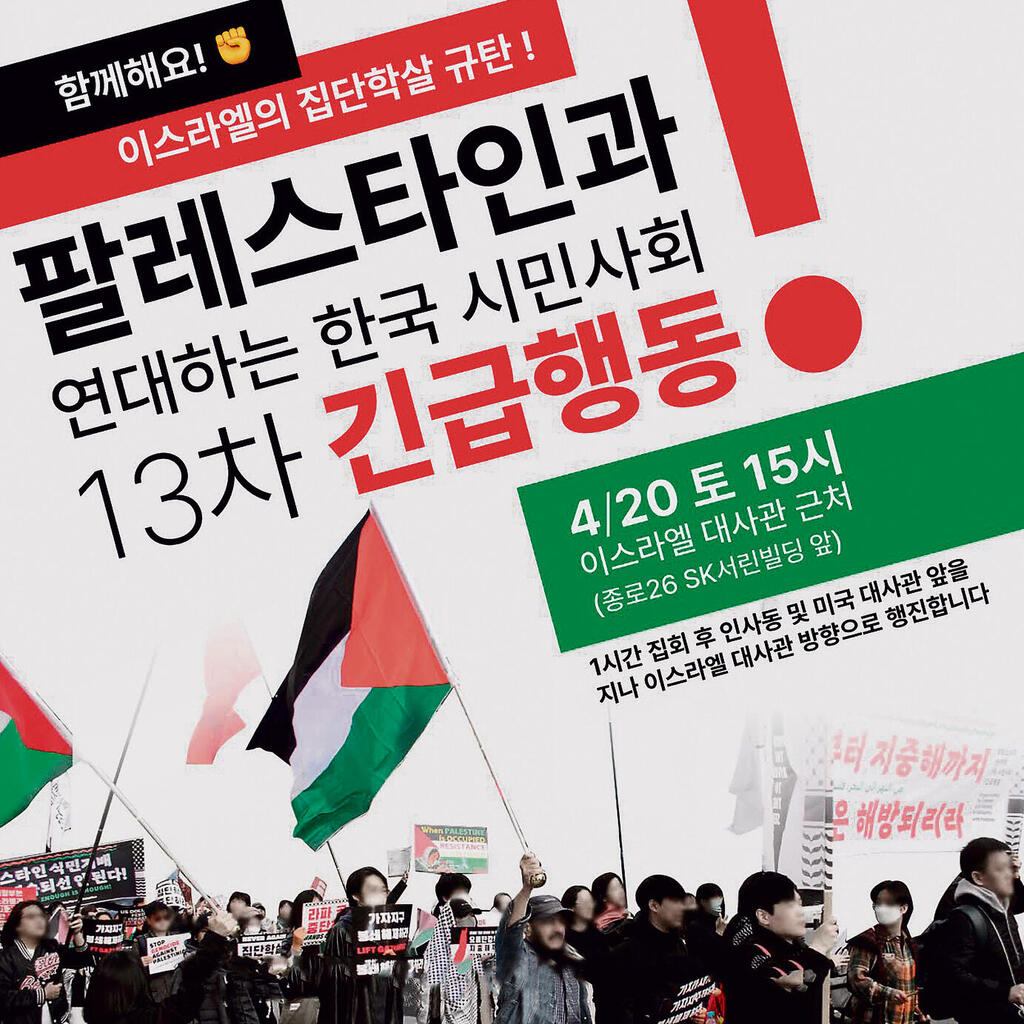Getting your Trinity Audio player ready...
China did not offer Israel even a shred of sympathy. The day after the October 7 massacre, the Israeli embassy in China posted a picture of hostage Noa Argamani on Weibo, a Chinese social media platform.
The Chinese people were unaffected by the picture of Argamani, whose mother is Chinese. Many users claimed that Israel was dragging China into war, while others commented "Nazi soldier." Within hours, the embassy was flooded by comments.
Instead of the regular 3-4 million views, the embassy received about 40 million views. The Chinese administration failed to label Hamas as a terrorist organization and did not condemn the massacre. However, Chinese netizens took it a step further by supporting the massacre and justifying it, expressing hope that Hamas would press on until Israel's destruction. Many referenced the Holocaust, Hitler and swastikas until the German embassy in China responded.
One after another, antisemitic conspiracy theories appeared online, on television networks, in newspapers and in academic articles in China. Search engines erased Israel, and Schindler's List's movie rating dropped from 9.7 to 4.3. The screening of the Israeli film This City in the main competition of the Beijing Film Festival was canceled with less than a day's notice. The husband of an Israeli diplomat in China was stabbed, but the motive remains unclear, and Chinese security forces censored the investigation.
"The manifestations of antisemitism in China are not common, and they mainly happen online," says Prof. Yoram Evron, a China researcher at the University of Haifa. "Unlike the West, Judaism and Jews are not part of Chinese history. They buy into stereotypes that many consider antisemitic: good with money, intelligent, Nobel Prize laureates, Marxist, Einstein and Freud. However, the Chinese view them positively. They also want to be intelligent, good with money, control the world and hold family values. However, they are completely on the Arab side and always supported the two-state solution with East Jerusalem as Palestine's capital.
"We need to look at this antisemitic surge through a geopolitical point of view," Evron added. "There is tension between the United States and China, and the U.S. has also instructed Israel to narrow its economic ties with China over the past eight years, so Israel is a small pawn in China and Russia's battle against the U.S. The Chinese also use the Palestinians to deflect Western criticism of their treatment of the Uyghur Muslim minority in China. They point to America's hypocrisy, which supposedly cares about Muslims in China but allows its ally to commit genocide, in their words, against Palestinians."
"It's true that China uses Israel to harm America, just as America uses Taiwan to harm China, but there are also other troubling reasons," says Tuvia Gering, a researcher at the Israel-China Policy Center at the Institute for National Security Studies (INSS).
"There are mega-platforms where there has been a significant growth in antisemitism since October 7. Jews were described as Nazis, as spreaders of diseases, responsible for the massacre, responsible for World War III, making money from selling vaccines and weapons, and expressions like 'too bad they didn't finish the job with you during the Holocaust.'"
"The Chinese regime's censorship apparatus monitors, censors and shuts down anything that doesn't suit it," explains Gering, "accounts with millions of followers are taken down in a heartbeat. However, they left the anti-Israel rhetoric. It's a tacit approval that leads influencers, academics and the media to understand that this is the party's policy and they need to align with it.
5 View gallery


Pro-Palestinian rally outside Israeli embassy in Tokyo
(Photo: Takashi Aoyama/Getty Images)
"On October 10, China Central Television shared a post wondering how Jews make up three percent of the U.S. population but control 70% of its economy. When a Chinese Foreign Ministry spokesman justifies the terror attack against the occupation, it's official Chinese policy. Most Chinese people have never met a Jew, and yet many of the former hate the latter. Educated Chinese see Jews as an existential threat."
Initial support turned around
While manifestations of antisemitism post-October 7 were especially pronounced in China compared with other Asian states, Japan and South Korea have also seen similar cases online and in numerous protests. Both countries barely have any Jewish people. However, many Japanese desire "to be like the Jews" in myths considered antisemitic in the West. Since residents sang in Hebrew on the streets and waved Israeli flags at the beginning of the war, much has changed.
"The Japanese have only been aware of Judaism for 150 years," says Prof. Rotem Kowner, a historian who studies Japan at the Department of Asian Studies at the University of Haifa. He lived there for the past ten years and still resides in Japan during his sabbatical. "There is much admiration for Jews, but also concern that such a connection could affect Japan's fate and complicate it. There is no large Jewish community here or in Korea, and yet there are extreme views toward Jews. It's a bizarre phenomenon."
5 View gallery


Dr. Raheli Baratz, head of the Department for Combating Antisemitism & Enhancing Resilience at the World Zionist Organization
(Photo: Yuval Chen)
"The Japanese still remember the help provided to them by the Jewish banker Jacob Schiff in the Russia-Japan war in 1904-1905. It also gave rise to the economic control conspiracy theory, and when you say you're Jewish here, they nod their heads as a sign that you're smart," Kowear continues. "The majority of the Japanese public has been pro-Palestinian and anti-Israeli since 1967."
"Since the war, there have been hundreds of pro-Palestinian demonstrations, casting doubt on Israel's right to exist, harsh articles in the press, antisemitic illustrations where Hitler smiles at events in Gaza or a cartoon on the 75th anniversary of Kristallnacht claiming that Israel does what was done to Jews back then. Israel is perceived as a country endangering world peace, sandwiched between Iran and in line with China and North Korea. There is no physical or property damage threat, but Japanese tourists hardly visit Israel anymore, there is already a call to boycott the sale of products to Israel, and public pressure led a Japanese company to cancel an MOU signing with Elbit."
To this, we can add what happened to Israeli judokas Guy Muki and Peter Paltchik at the end of March, when they arrived at a training camp in Tokyo. The two found themselves in an anti-Israel demonstration, argued with the protesters, and Muki's judo uniform, with an Israeli flag on it, was snatched away from him. "We go there two or three times a year for competitions and training, and we've never experienced anything like this, never seen anything anti-Israel," recalls Muki, "and the fact that my clothes were stolen in Japan is really abnormal."
While Japan condemns Hamas and calls for the release of the hostages, there has been a growing anti-Israel sentiment since October 7. Every week, an organization called Hiroshima-Gaza gathers to demonstrate and raise a sign to "liberate Gaza" on a bridge that marks the ground zero of the atomic bomb explosion in the city.
"Before the war, we received reports of a single-digit number of antisemitic incidents per year in Asia," says Dr. Raheli Baratz, head of the Department for Combating Antisemitism & Enhancing Resilience at the World Zionist Organization, "now there are reports of dozens of incidents since the war broke out. We must pay attention to it."
How do you explain the change?
"There are many reasons, but I think the main reason for the rise in both Japan and South Korea is students who have studied and are studying in the West and bring with them the pro-Palestinian struggle as something 'cool, to be like the Westerners.'"
Korea differs from China and Japan with 40% of the population being conservative Christians that are interested in Israel. Like Israel, it also gained independence in 1948 and faces security threats beyond its borders. Despite all this, many Koreans have adopted an anti-Israel stance. A Korean BDS activist who studied in the West for six years returned home with frightening rhetoric. "You are a terrorist organization trying to kill the resistance movement, which I think was gentle with you."
"We want to ensure that this is the last time there will be a massacre," she continues her disturbing comparisons. She demands from her government and from companies to stop trading with Israel, and that universities sever ties and research with Israel. She continues to refer to Israel as an apartheid regime that constantly infringes on Palestinian rights.





